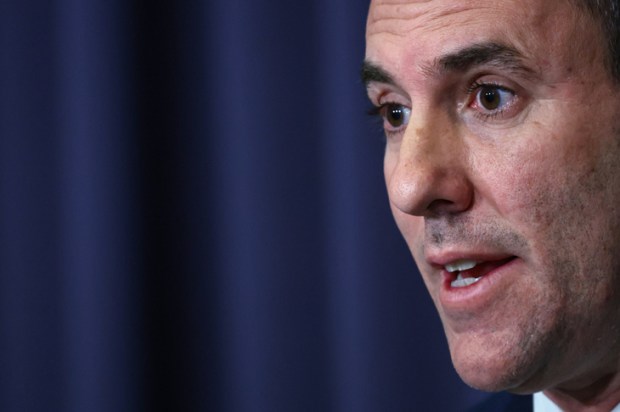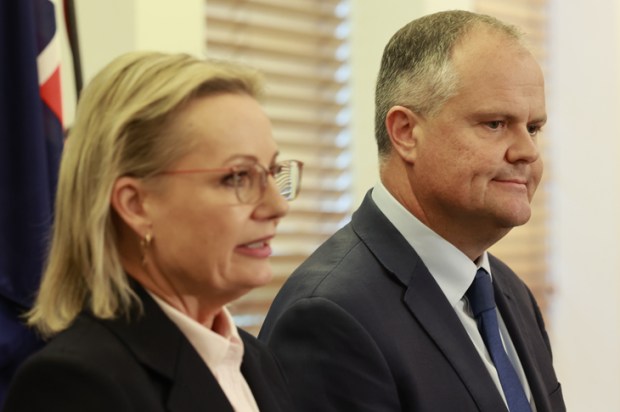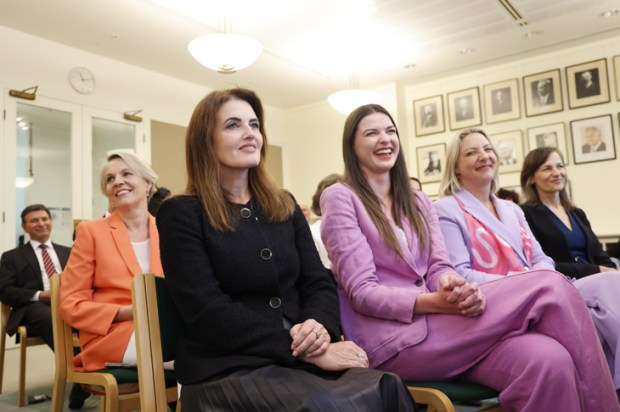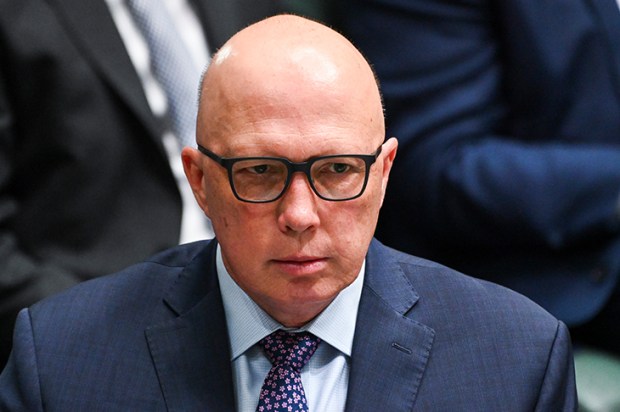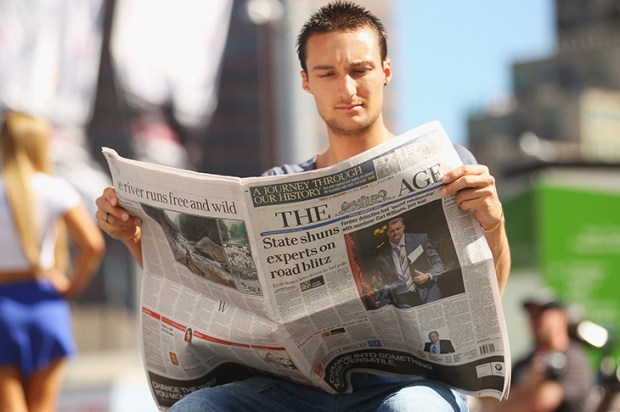The spirit of Christmas came to me last week in a very real but unexpected way. I had given myself a night off and went to Cicciolina, a long-established restaurant in St Kilda which has long been the popular resort of artists, writers, film-makers and the like. I spent an enjoyable evening reading The Spectator Australia, signing autographs and reminiscing on the events of the year and what I would contribute in this column for the Christmas edition of our magazine. Having done that, I spent a half-hour or so wandering up and down Acland Street in the demi-monde of Melboune, chatting with the locals about the sort of things one normally talks about to people in St Kilda, inflation, the price of Bitcoin, global warming and suchlike and then took a taxi home. My driver was a Muslim; I will not give you his full name of course for reasons of privacy, but his given name was Mohammad. On the way, we chatted about his family, the cost of living and the challenges of bringing up children in this day and age while practising the Muslim faith. As you can imagine, by this time and under the benign influence of dinner at Cicciolina, I was, how shall I say, mellow. But to my horror, when we arrived at South Yarra and it was time to pay for the taxi, I found that I had lost my wallet, including of course all of my credit cards. The immediate result of this catastrophe was that I had no way of paying Mohammad for the journey. As I must have dropped the wallet during my meanderings in St Kilda, we turned around and drove back to the scene of my carelessness and between us we conducted an inevitably fruitless search for the offending item. The idea of finding a wallet that had been lost on one of the mean streets of St Kilda and the further notion that some local citizen may have found it and would return it, was of course fanciful and beyond all reasonable expectation. So, here I was, miles from home and with no money for the lengthy trip so far, let alone the inevitable further cost of getting home on the third and final leg of the journey, if Mohammad would take me, which he immediately offered to do. By this time, I was also frazzled and no doubt looked the worse for wear. I immediately opened the subject of how on earth I could pay the now rocketing cost of the taxi fare. But Mohammad came forward with the solution: ‘Don’t worry about it,’ he said, ‘You can pay me tomorrow or some other time.’
It was then that the parable of the Good Samaritan came to mind. You would of course be familiar with the parable, but just to refresh your memory, it goes like this: ‘Jesus was debating with an expert in the law who asked Jesus “Who is my neighbour?” Jesus said: “A man was going down from Jerusalem to Jericho, when he was attacked by robbers. They stripped him of his clothes, beat him and went away, leaving him half-dead. A priest happened to be going down the same road, and when he saw the man, he passed by on the other side. So too, a Levite, when he came to the place and saw him, passed by on the other side. But a Samaritan, as he traveled, came where the man was; and when he saw him, he took pity on him. He went to him and bandaged his wounds, pouring on oil and wine. Then he put the man on his own donkey, brought him to an inn and took care of him.”
Mohammad the Muslim had emerged as my Good Samaritan, even without a donkey. He had not bandaged my wounds except for my wounded ego, and I had already had the wine, but he had shown remarkable generosity and was about to move even further into full Good Samaritan mode. His generosity went further when I explained that I did not even have any cash and would not have any until I could go to the bank the following morning, replace the credit cards and hopefully prevail on the bank for some money.
The parable continues: ‘The next day he took out two denarii and gave them to the innkeeper. “Look after him,” he said, “and when I return, I will reimburse you for any extra expense you may have.” Then Jesus said, “Which of these three do you think was a neighbor to the man who fell into the hands of robbers?” The expert in the law replied, “The one who had mercy on him.” Jesus told him, “Go and do likewise.”’
Mohammad pulled out his wallet and started to peel off a ream of twenty-dollar notes which he offered to me with the announcement: “This will tide you over until you get your money and you can pay be back some other time.”
I do not know if the Good Samaritan followed up, but Mohammad certainly did, as he rang me several times the following day to remind me to go to the police and the bank. And the miracle was still working, because a few days later another taxi driver, also a Muslim, called me, having found the wallet with my contact details inside and returned it the same day, still intact.
Over the same days in Melbourne, the pro-Palestinian rabble forced the Myer emporium to cancel the opening of its renowned Christmas windows, one of the traditions of Melbourne; the principal of the Eltham North Primary School slapped a ban on kids exchanging Kris Kringle presents and ‘Christmas-themed items’ so that ‘non-Christian students’ would not be offended; and, as I write this, the terrible news is coming through of the disgraceful and anti-Semitic firebombing of the synagogue in Ripponlea in the heart of the Jewish community of Melbourne.
But it was a Muslim who had shown me that the Christmas message to love my neighbour was still alive on the streets of Melbourne. I hope that I can go and do likewise.
Got something to add? Join the discussion and comment below.
You might disagree with half of it, but you’ll enjoy reading all of it. Try your first month for free, then just $2 a week for the remainder of your first year.



